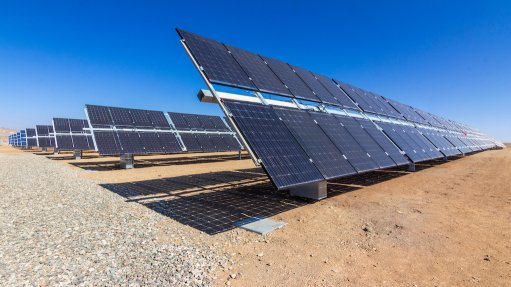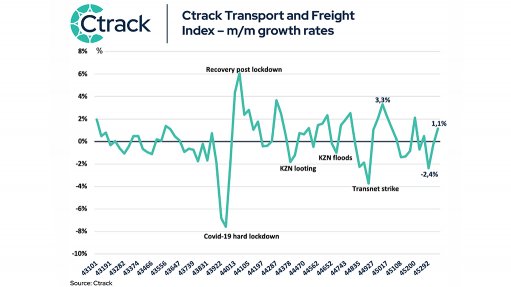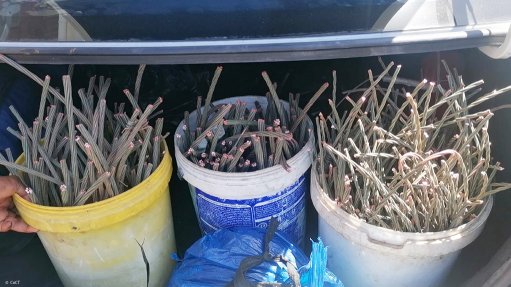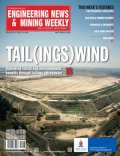Clarity needed on potential double taxation of plastic bags under new EPR rules, says law firm
Law firm Webber Wentzel says more clarity is needed about the impact of Extended Producer Responsibility (EPR) regulations on plastic bag producers, as plastic bags are already regulated under 2003 legislation, amended in 2021, and a levy was introduced in 2004.
The EPR regulations apply only to products and their related waste streams identified by the Forestry, Fisheries and the Environment Minister in the Gazette, and envisage that all producers of identified products and their related waste streams will establish and implement an EPR scheme or join an EPR scheme established by a producer responsibility organisation on behalf of its producers.
A notable consideration for producers is that an EPR fee is chargeable on identified items, which will fund the relevant EPR scheme. This fee must be indicated as a separate line item on every invoice and cash sale receipt for each purchase, or be publicly available on the producer responsibility organisation's website in terms of the proposed amendments, say Webber Wentzel partner Garyn Rapson, senior associate Paula-Ann Novotny and candidate attorney Emma Bleeker.
"This raises the question whether this EPR fee will be charged on plastic bags in addition to the existing plastic bag levy of 25c, [introduced in 2004 under the Customs and Excise Act of 1964]."
The EPR scheme for the paper and packaging sector and some single-use products applies to identified products that include an array of paper and paper packaging material, plastic packaging, biodegradable and compostable packaging, single-use plastic products (including if compostable or biodegradable), glass packaging and metal packaging.
In terms of this scheme, packaging is defined as any material, container, wrapping or corrugated cases used for the containment, transport, handling, protection, promotion, marketing or sale of any product or substance. It may be primary packaging containing the actual product, or secondary or tertiary packaging, typically containing products already packaged in primary packaging.
"It can be argued that plastic bags fall within the ambit of this definition, as they are secondary or tertiary packing used to contain, transport, handle or protect goods and can be branded for marketing purposes," they highlight.
The plastic bag regulations are considered upstream regulations, as they regulate the production and composition of products. Downstream regulations, such as the EPR, regulate the waste implications associated with products after their consumption, or what is referred to as their post-consumer phase.
"The advantages of both the Plastic Bag Regulations and the EPR Regulations applying to plastic carrier and plastic flat bags is that they are the only waste type to be regulated both upstream and downstream.
"However, some plastic bags that do not fall within the scope of the Plastic Bag Regulations do fall within the ambit of the EPR Regulations, such as garbage bags. The implications of applying both sets of regulations to the producers of plastic bags is yet to be seen," the team says.
Other obligations for producers in terms of the EPR Regulations include having to submit information about the ‘lifecycle’ of their products, reduce the consumption of natural resources, and show that products are designed to be more environment-friendly. Under the EPR Regulations, offenders found guilty of noncompliance can be imprisoned for up to 15 years, or fined, or both.
Arguably, the new downstream regulations also capture the plastic bag sector. The new EPR Regulations are aimed at drastically reducing the amount of waste that enters landfill sites. Essentially, they require producers, manufacturers, importers and brand owners to include an increasing amount of recycled material in their products.
Additionally, on April 7, 2021, Forestry, Fisheries and the Environment Minister Barbara Creecy published the amended Plastic Bags Regulations, which included the introduction of a definition of post-consumer recyclate.
This was defined as material generated by households or commercial, industrial or institutional facilities, in their role as end-users of the product, which can no longer be used for its intended purpose, and includes returns of material from the distribution chain, as well as in-house scrap that already contains post-consumer recyclate content.
"The amended regulations set goals for the minimum percentages of post-consumer recyclate that plastic bags should contain at certain intervals until they achieve a 100% post-consumer recyclate content by January 1, 2027. The amended regulations provide for a person to apply for an exception to the post-recyclate threshold."
Comments
Press Office
Announcements
What's On
Subscribe to improve your user experience...
Option 1 (equivalent of R125 a month):
Receive a weekly copy of Creamer Media's Engineering News & Mining Weekly magazine
(print copy for those in South Africa and e-magazine for those outside of South Africa)
Receive daily email newsletters
Access to full search results
Access archive of magazine back copies
Access to Projects in Progress
Access to ONE Research Report of your choice in PDF format
Option 2 (equivalent of R375 a month):
All benefits from Option 1
PLUS
Access to Creamer Media's Research Channel Africa for ALL Research Reports, in PDF format, on various industrial and mining sectors
including Electricity; Water; Energy Transition; Hydrogen; Roads, Rail and Ports; Coal; Gold; Platinum; Battery Metals; etc.
Already a subscriber?
Forgotten your password?
Receive weekly copy of Creamer Media's Engineering News & Mining Weekly magazine (print copy for those in South Africa and e-magazine for those outside of South Africa)
➕
Recieve daily email newsletters
➕
Access to full search results
➕
Access archive of magazine back copies
➕
Access to Projects in Progress
➕
Access to ONE Research Report of your choice in PDF format
RESEARCH CHANNEL AFRICA
R4500 (equivalent of R375 a month)
SUBSCRIBEAll benefits from Option 1
➕
Access to Creamer Media's Research Channel Africa for ALL Research Reports on various industrial and mining sectors, in PDF format, including on:
Electricity
➕
Water
➕
Energy Transition
➕
Hydrogen
➕
Roads, Rail and Ports
➕
Coal
➕
Gold
➕
Platinum
➕
Battery Metals
➕
etc.
Receive all benefits from Option 1 or Option 2 delivered to numerous people at your company
➕
Multiple User names and Passwords for simultaneous log-ins
➕
Intranet integration access to all in your organisation


















